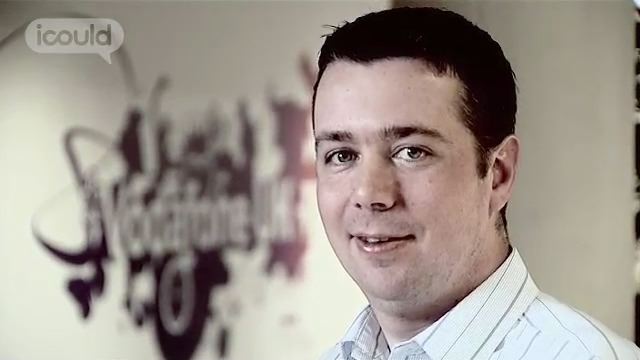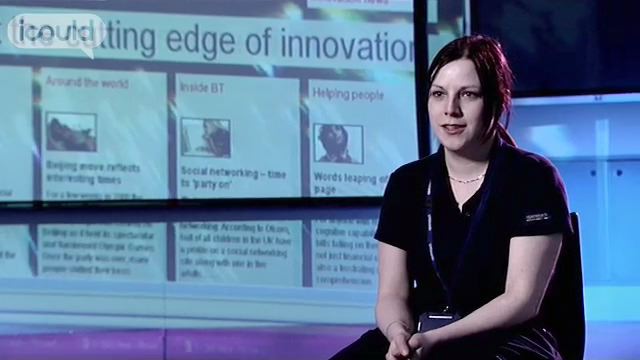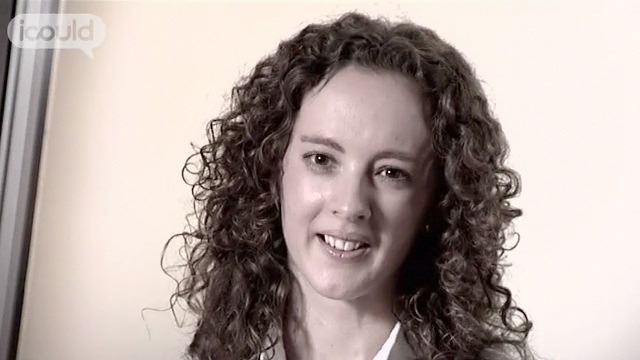Core Planning Manager
Vodafone
James T
00:00:04 I’m James T. I work for Vodafone UK, and I’m the core network capacity planning manager within Vodafone UK. I’m actually the leader of the core capacity planning team. What we do is we work in an engineering function and we’re responsible for planning our networks, so we work out if they’re going to add a million customers, for example, what that means to our network in terms of how much more traffic we’d see on it, how many more customers, how much more… how many more calls would they make, and then is our network big enough, effectively, so do we need to expand it? Do we need to put more boxes in?
00:00:43 I actually came here as a graduate, straight from university. Vodafone were targeting the universities, doing a series of presentations, what was known as a milk round, and I was very interested in what they had to say and put my application in.
00:00:59 Ever since primary school, I always knew I was analytical. I like to find out why does that happen or why does that work like it is? My favourite subjects were… I liked the sciences, and, in particular, I like the kind of design technology, the kind of woodwork, the metalwork, and then when I went to high school the electronics and the technology. I was toying with the idea about whether or not I should go to university or whether or not maybe take on an apprenticeship. I didn’t really know which path to take, and, you know, I had a lot of support from what was my design teacher, who gave the encouragement to say ‘You’ve got the ability to go straight to university.’
00:01:44 University for me? Loved every minute of it: living away from home for the first time, living together, cooking together, spending a lot of time together with new people. It’s kind of like the Big Brother house, I suppose. Yes, we had our ups and downs, but we came out being best friends and it was a great experience.
00:02:08 My grandfather, he built his own engineering business, but that was more in kind of machine tools and manufacturing, but I think really I was always really self driven around what inspired me and what I wanted to do. I wasn’t particularly told ‘you should take those options and those subjects at school.’ I think my parents were always happy to kind of see me doing what I enjoy.
00:02:36 I’d say my biggest passion for me is mountain biking, anything outdoorsy. I was always mucking about on my BMX when I was a kid and I don’t think I’ve grown up in any kind of respect like that at all. A couple of years ago, me and a friend both bought ourselves surf boards and we’re trying to teach ourselves how to surf – very badly – and snowboarding, travelling, anything involving, kind of, seeing new places, new people and new cultures.
00:03:08 Where do I see myself in five year’s time? That’s a tough one. All I want to do is absolutely make the most out of what comes up. I’ve started out on the line management path now. I’m certainly looking to keep building on that. Yes, it would be great to move up within the organisation. Outside of work, kids probably, continue the surfing, and the biking, and bring them along.
00:03:40 End
James T works for Vodafone as a Core Network Capacity Planning Manager. He answers questions like, “is our network big enough, effectively, so do we need to expand it?”. He says, “I was toying with the idea about whether or not I should go to university or whether or not maybe take on an apprenticeship”, he chose university and loved the experience.
More information about Telecommunications engineers
The UK average salary is £29,813
There are 37.5 hours in the average working week
The UK workforce is 47% female and 53% male
Future employment
- Installs internal cabling and wiring for telephone systems and fits and wires junction and distribution boxes;
- Fixes connecting wires from underground and aerial lines to premises and connects cable terminals to inside wiring;
- Installs telephones, switchboards and coin operated phone boxes;
- Uses testing equipment to locate defective components of circuitry and makes any necessary repairs;
- Tests installation and makes any further necessary adjustments;
- Assists with the erection of wooden poles or steel towers to carry overhead lines;
- Connects cables and tests for any defects;
- Locates and repairs faults to lines and ancillary equipment;
- Erects and maintains mobile telecommunications infrastructure.




